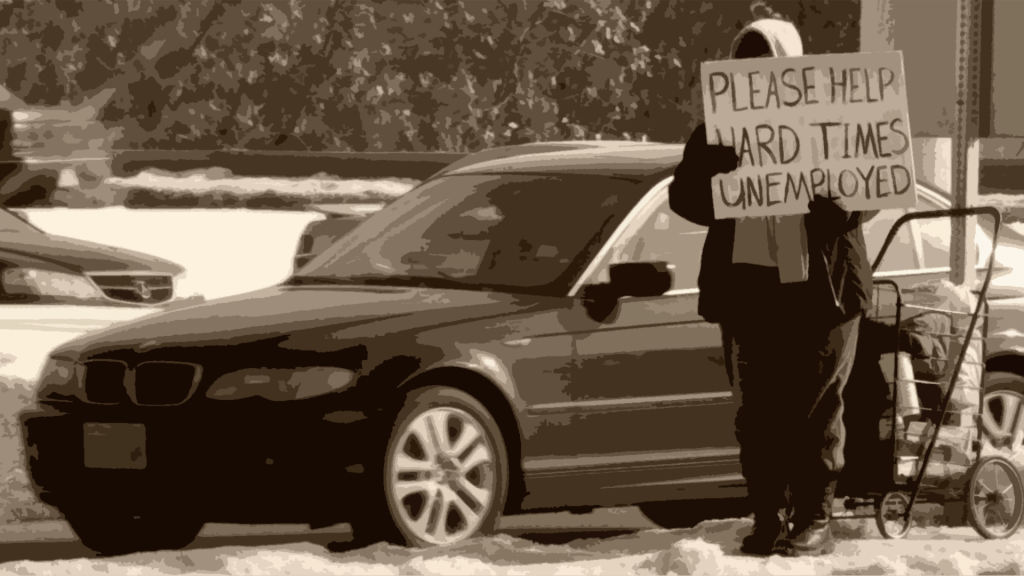Syracuse proposes anti-panhandling legislation amid national concerns about homelessness
Syracuse Chairman proposed new anti-panhandling law

While most other cities and towns across the country are in the process of striking existing anti-panhandling laws from the books, Syracuse has recently introduced a new one.
Onondaga County Legislature Chairman Ryan McMahon, R-Syracuse introduced the legislation in late August with a goal of curbing “aggressive panhandling.” As reported by Syracuse.com, McMahon claimed the bill was an attempt at making the streets safer from those seeking donations who may become too aggressive.
“If I walk by and ask you for a dollar, that’s not illegal. But if you start chasing me down, or walking down the street with me, that’s not allowable,” McMahon was reported as saying in an August article on Syracuse.com.
Described by the National Law Center on Homelessness and Poverty as the criminalization of homelessness, laws such as those that target panhandling, or asking people for donations in a public location, make certain behaviors that are typically associated with the homeless punishable by fines or even jail time.
Currently, cities across the nation are striking similar laws regarding the homeless from their books, including the recent decision in the 9th circuit courts that prosecuting people for sleeping or camping in public is cruel and unusual punishment if better accommodations are not available.
“No city should be trying to pass new legislation on panhandling at this point,” said Eric Tars, Senior Attorney at the NLCHP and a Syracuse native himself. “These laws are being stricken from the books and any new ones are making it nowhere.”
Yusuf Abdul-Qadir, director of the Syracuse chapter of the New York Civil Liberties Union, expressed similar skepticism about the bill in an email, saying it flies in the face of court decisions on the grounds of free speech.
“Time and again courts have thrown out panhandling legislation because it violates the fundamental First Amendment principle that government cannot put restrictions only on certain kinds of speech. Onondaga County’s proposal would be no exception.”
The recent push against such legislation has been spearheaded by the NLCHP’s “Housing Not Handcuffs” initiative to decriminalize homelessness nationally. By fighting legislation like this, the NLCHP and partnering organizations are looking to have people look at court and legal rulings not as limitations, but a new way to think about how these issues can be handled other than throwing the homeless in jail or hitting them with fines they cannot pay.
Tars said legislation like that trying to be passed in Syracuse is trying to create a way to charge someone who is not actually committing an aggressive act, but people who are perceived as threatening for who they are.
“Is a Girl Scout who is asking someone if they want to buy cookies within 20 feet of the ATM going to be perceived as threatening? No,” said Tars. “But if it’s an African-American person panhandling in a predominantly white neighborhood? It’s going to be perceived as a threat.”
Gretchen Purser, Professor of Sociology at the Maxwell School of Syracuse University, also takes special issue with the language of the bill describing panhandlers as “aggressive.”
“I spend all of my research time with this [homeless] population, and I’ve never once been ‘aggressively panhandled,’ ever,” said Purser. “Why someone would even interpret it as ‘aggressive,’ I don’t even know where it’s coming from besides a desire to crack down on the homeless and eradicate them.”
To Purser, some explanation for such a targeted legislation being introduced in Syracuse may have to do with the continual effort to redevelop downtown. She describes that fact that Syracuse, one of the poorest cities in the nation, has a lot of people that experience housing procerity as an embarrassment to the city and a sight that a lot of people don’t want to see.
“You’ve got the major redevelopment of downtown happening right next door to a huge concentration of homeless people in the city and that’s a big barrier to what a lot of developers and city politicians want to see happen,” said Pursuer.
The Downtown Committee of Syracuse has reported more than $265 million in capital investment spending in the downtown area of Syracuse for the purpose of redevelopment. As of a January 2018 annual “Point in Time” count, Syracuse’s number of homeless had still increased significantly from the year prior.
As of September, the legislation has been temporarily tabled but still has potential to resurface. McMahon nor his office could be reached for comment. The Mayor’s office and representatives from the County Legislation also refused to comment.
In the meantime, the homeless and housing insecure in Syracuse continue to bide their time. Though not currently at risk for up to 15 days in jail or a fine over $100 for something like asking for money near an ATM, they still live with the daily dangers of experiencing homelessness.
“It’s a desire to eradicate them,” said Purser. “But that’s foolish because this isn’t going to eradicate them.”





